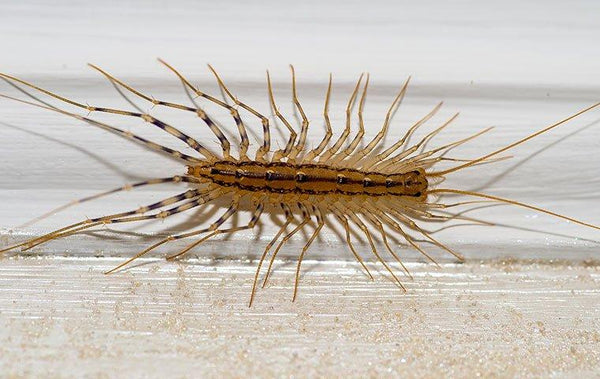Introduction:
House centipedes, with their long, slender bodies and multiple legs, are a common sight in many homes around the world. While their appearance may startle some, these fascinating creatures play an important role in controlling other household pests and are generally harmless to humans. In this article, we’ll explore the world of house centipedes, discussing their characteristics, behavior, and the benefits they bring to our homes.
1. Appearance and Characteristics:
House centipedes, scientifically known as Scutigera coleoptrata, are arthropods belonging to the class Chilopoda. They are characterized by their elongated bodies, which can range from 1 to 1.5 inches in length, and their numerous pairs of long, thin legs. House centipedes have distinctively segmented bodies and are typically light brown or grayish-yellow in color.
2. Habitat and Behavior:
House centipedes are commonly found in damp, dark environments such as basements, bathrooms, and crawl spaces. They are nocturnal creatures, preferring to hunt for prey at night, and are adept at moving quickly and agilely across surfaces. House centipedes are carnivorous and feed primarily on other household pests such as spiders, ants, cockroaches, and silverfish.
3. Benefits of House Centipedes:
While their appearance may be unsettling to some, House improvements.club/ provide valuable pest control services by preying on other household pests. Their diet consists mainly of insects and arthropods that are considered nuisances or pests, making them beneficial allies in keeping our homes free from unwanted intruders. By reducing populations of other pests, house centipedes help maintain a natural balance in the home environment.
4. Harmlessness to Humans:
Despite their intimidating appearance, house centipedes are harmless to humans and pets. They do not bite or sting unless provoked, and their venom is not harmful to humans. In fact, house centipedes are generally shy and elusive creatures that prefer to avoid contact with humans whenever possible.
5. Prevention and Control:
While house centipedes can be beneficial in controlling other household pests, some people may prefer to minimize their presence in their homes. To prevent house centipedes from entering your living space, it’s essential to maintain cleanliness and address moisture issues, as these creatures are attracted to damp environments. Sealing cracks and crevices, installing door sweeps, and reducing clutter can also help deter house centipedes from taking up residence indoors.
6. Conclusion:
In conclusion, house centipedes may seem like unwelcome guests in our homes, but they serve a valuable purpose in controlling other household pests. By preying on insects and arthropods that are considered nuisances or pests, house centipedes help maintain a healthy balance in our indoor ecosystems. While some people may find their appearance unsettling, it’s important to remember that house centipedes are harmless to humans and provide a natural form of pest control that benefits our homes and living environments.

